1.INTRODUCTION
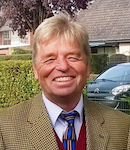
Manfred A. LANGE
Manfred A. Lange, former Director of the Arctic Center in Rovaniemi, Finland (1992-1995) and Professor of Geophysics at the University of Münster in Germany (1995-2007), was the founding Director of the Energy, Environment and Water Research Center at the Cyprus Institute in Nicosia, Cyprus (2007-2015). Currently, he is the Director of the Future Earth MENA Regional Center and serves on the Steering Committee of MedECC. His research includes the assessment of climate change impacts with a focus on water- and energy security, renewable energy sources and energy- and water use efficiency in the built environment.
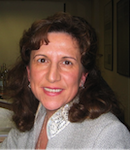
Maria Carmen LLASAT
María Carmen Llasat is Full Professor of Atmospheric Physics at the University of Barcelona (Spain). Her research and activity are focused on climate change, natural hazards and water resources in the Mediterranean Region. She was president of the Natural Hazards Section of the European Geophysical Society, editor-in-chief of the journal NHESS and coordinator of the research groups on societal impacts of the projects MEDEX and HYMEX. She is member of the Mediterranean Experts on Climate and Environmental Change, steering committee and collaborator of the State Research Agency of Spain.
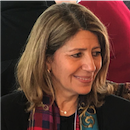
Maria SNOUSSI
Maria Snoussi is Professor at Mohammed V University in Rabat, Morocco and since 2017, she acts as President of the Scientific Council of the French Research Institute for Development (IRD). She is a coastal geoscientist focusing on coastal risks and vulnerability. She is also Member of the MedECC Steering Committee, GSO of the Blue Economy Initiative in the Mediterranean (BlueMed) and chair of the MedWet Expert Group on Mediterranean Wetlands and Climate Change. She also served as consultant in international agencies such UNEP/MAP and the World Bank.
2. DRIVERS OF CHANGE
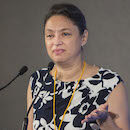
Semia CHERIF
Prof. Dr. Semia Cherif is a Full Professor in the Department of Environment at ISSBAT, UTM (Tunisia). She presently does research in Atmospheric Science, Climate Change and Water Science using Analytical Chemistry, Biological Chemistry, Statistics, Modelling and Artificial Intelligence. She received the Scientific Research Prize for The Environmental Technologies of the President of the Republic in 2009 (Tunisia) and the prestigious McKee Medal for GroundWater Protection, Restoration or Sustainable use of the Water Environment Federation in 2013 (USA). Profile
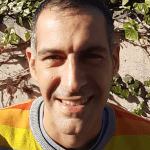
Enrique DOBLAS-MIRANDA
PhD in Biology, Enrique Doblas is researcher on soil biodiversity and ecosystems adaptation to global change, and expert in rural development at CREAF (Barcelona). He has been implied in several European projects on boosting Mediterranean forestry innovation and scientific excellence, ecosystem services, natural based solutions, and other initiatives on forest resilience and management. His research has led to numerous talks and publications, as scientific as to a broader audience.
https://www.researchgate.net/profile/Enrique_Doblas-Miranda
https://www.linkedin.com/in/enrique-doblas-miranda/
http://www.creaf.cat/es/personal/enrique-doblas-miranda
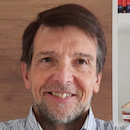
Piero LIONELLO
Piero Lionello is full professor of Oceanography and Atmospheric Science at the University of Salento, Lecce (Italy). He is a climatologist with a focus on the climate of the Mediterranean Region, its past and future evolution, impacts of climate change and extreme events. He is the chairman of the MedCLIVAR (Mediterranean CLImate VARiability) network, and has been member of the Scientific Advisory Board of ECMWF (European Center for Medium Range Weather Forecast) and chairman of the International Scientific Steering Committee of the HyMeX project (Hydrological cycle in the Mediterranean eXperiment). He has edited three books on the Climate of the Mediterranean Region, several special issues of international scientific journals, and organized many conferences and meetings on related topics. https://www.unisalento.it/scheda-utente/-/people/piero.lionello
3. RESOURCES
3.1. WATER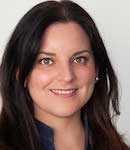
Marianela FADER
Dr. Marianela Fader is the deputy director of the International Centre for Water Resources and Global Change, located at the German Federal Institute of Hydrology in Koblenz. She leads studies in the area of climate change impacts on food security, hydrology and irrigation water use (mainly on a global or large scale and using process-based modelling). Geographically, Dr. Fader is specialized in water-related topics of the Mediterranean region. She also teaches special classes at summer schools and universities, and supervises master theses in cooperation with various universities. https://www.waterandchange.org/en/m-fader/
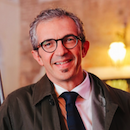
Carlo GIUPPONI
Carlo Giupponi is Full Professor of Applied Economics at the Department of Economics, Ca’ Foscari University of Venice and Dean of the Venice International University. His research activity focuses on sustainability science and global change, with specific interests for valuation methods, scenario analysis and the integrated assessment of natural resources, at local to global scales. The most relevant methodological contributions are in the field of disciplinary integration, through the development of original methods and tools adopting participatory techniques, system dynamics and spatial analysis as means for supporting decisions of private companies and public bodies.
https://mizar.unive.it/cgiuppoweb/, http://www.unive.it/pag/16892
3.2. FOOD

Rachid MRABET
Rachid Mrabet holds a PhD Degree from Colorado State University (1997). Research Director and Senior Cropping Systems Agronomist at Morocco’s National Institute of Agricultural Research (INRA). Main research relates to conservation agriculture, dryland cropping systems agronomy, soil physics & hydrology, soil quality and carbon sequestration and crop and soil erosion process modeling. Deputy President of World Association of Soil and Water Conservation (WASWAC) and Coordinating Lead Author for IPCC (AR6/AFOLU).
http://www.inra.org.ma

Robert SAVE
Dr. Robert Savé M. is developing his scientific activity in Plant Science Area of IRTA also is the coordinator of Viticulture and Enology group of IRTA. He is lecturer of Ecology at Universitat Autònoma de Barcelona and Universidad Autónoma de Nicaragua-FAREM. He’s working from the plant to the landscape level, studying the adaptive and mitigation strategies of wild and crop vegetation to climate change. He is a player of Rugby Golden Oldies Team, XV Matusalem Sant Cugat, and birding.
3.3. ENERGY TRANSITION IN THE MEDITERRANEAN
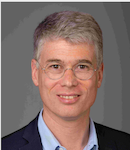
Philippe DROBINSKI
Dr. Philippe Drobinski is the director of the Laboratoire de Météorologie Dynamique. His research focuses on regional climate variability and trend in the Euro-Mediterranean region with a special interest in water and energy resources. He has coordinated many national and international programs, among them the international program HyMeX on the water cycle in the Mediterranean. Since 2019, he has been the founding director of the interdisciplinary center Energy4Climate, aiming at addressing the systemic complexity of the energy transition. He is the author of more than 160 chapters of books and articles in international peer-reviewed journals and has been the coordinating lead author of the energy chapter of the 1er Mediterranean Assessment Report on the regional climate and environment change. At Ecole Polytechnique, he teaches courses at master level on climate change and renewable energy resources and he is responsible of an executive training program on environment and energy management.
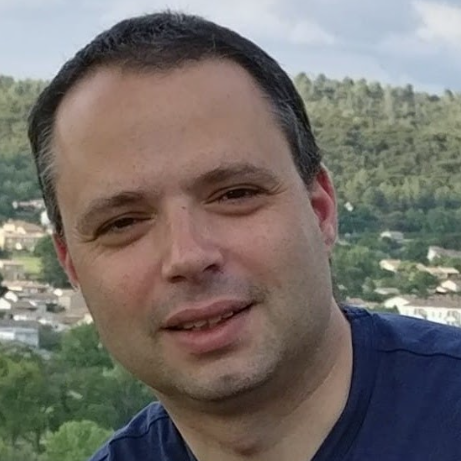
Brian AZZOPARDI
Dr Inġ. Brian Azzopardi is Senior Academic and Engineer. His interdisciplinary experimental studies and theoretical investigations research focuses to assess the impact, integration and plan for mitigation policies for high penetration of photovoltaics systems and technologies and electric vehicles using energy informatics and real-life data, inter-laboratory studies, networks and scenarios. He is the editor/author of 100+ books, chapters and articles. In 2014 he founded the MCAST Energy with the purpose to address the energy transition challenges and opportunities specifically on island states like Malta and is the principal investigator of two H2020 projects JUMP2Excel and NEEMO. brianazzopardi.eu
jump2excel.eu
neemo-project.eu
4. ECOSYSTEMS

Mario BALZAN
Dr Mario V Balzan, Senior Lecturer, Malta College of Arts, Science and Technology, is an applied ecologist. His research focuses on sustainable landscape management and the implementation of nature-based solutions to address societal challenges. He has set up a nature-based solutions research and innovation cluster for Malta and works with policymakers to assess and model ecosystem services, and identify effective green infrastructure measures across a rural-urban gradient. www.mariobalzan.info; http://renature-project.eu/

Abed El Rahman HASSOUN
Abed El Rahman HASSOUN holds a PhD in Oceanology in 2014, prepared between Université de Perpignan Via Domitia, France and the National Council for Scientific Research in Lebanon (CNRS-L). Dr. Hassoun is a researcher in the National Centre for Marine Sciences/CNRS-L, a governmental research institution in Lebanon. He is interested in long-term biogeochemical trends (ocean acidification, warming,..) and phytoplankton studies in the context of climate change. He supervised several Master and PhD students. He is a member in many international networks and is leading the Ocean Acidification Mediterranean Hub (OA Med-Hub).
https://scholar.google.com/citations?user=iTGJeQMAAAAJ&hl=en
OA Med-Hub (Ocean Acidification Mediterranean Hub): http://www.goa-on.org/regional_hubs/mediterranean/about/introduction.php
5. SOCIETY
5.1. DEVELOPMENT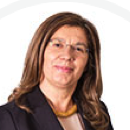
Maria DOS SANTOS
Maria Dos Santos is Assistant Professor at Polytechnic Instituto of Lisbon and a Researcher at ISCTE- University Institute of Lisbon, Portugal. Her current research interests and expertise include applied economics, sustainability and development. She is/was a Portuguese Delegate from 2 COST Actions supported by the European Commission, Special Advisor on the last Multiannual Financial Framework from EU and a Portuguese Delegate in a Project supported by the European Parliament. She is also a member of various Editorial Board of scientific journals.
https://ciencia.iscte-iul.pt/authors/maria-jose-palma-lampreia-dos-santos/cv
https://www.researchgate.net/profile/Maria_Dos-Santos2
https://orcid.org/0000-0002-1992-0419
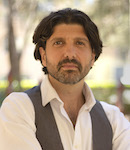
Stefano MONCADA
Dr Stefano Moncada, Ph.D. in Economics, he lectures and conducts research in the areas of development, poverty, and climate-change. Prior to join academia, Stefano worked in the Italian Parliament as policy analyst. Stefano is the Director of the Islands and Small States and affiliated with the Institute for European Studies, of the University of Malta, he acts as expert reviewer for the Intergovernmental Panel on Climate Change (IPCC) and part of the Executive Committee of the European Association of Development and Training Institutes (EADI).
https://www.um.edu.mt/profile/stefanomoncada
https://www.um.edu.mt/issi
5.2. HEALTH
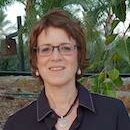
Shlomit PAZ
Prof. Shlomit Paz is a climate change researcher at the University of Haifa, Israel. Her scientific work is focused on the impacts of climate change on human health, mainly on vector-borne diseases transmission. Prof. Paz worked as the leader of research for the European Centre for Disease Prevention and Control on the impacts of climate change on West Nile virus spreading. Recently, she was a contributor to the IPCC Special Report on Global Warming of 1.5°C (SR15). Currently she is involved in international projects on the predicted impacts of the changing climate on diseases spreading. https://sites.google.com/hevra.haifa.ac.il/shlomit-paz/publications
5.3. HUMAN SECURITY
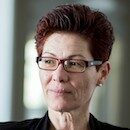
Vally KOUBI
Vally Koubi is a Professor at the Center for Comparative and International Studies (CIS) at ETH Zurich and the Department of Economics at the University of Bern, Switzerland. She studies the social consequences of climate change, in particular migration and conflict mainly in the developing world. Her research combines perspectives from different social science disciplines, employs a wide range of research methods, and has been published in journals such Climatic Change, International Organizations, Journal of Peace Research, Nature Climate Change, and World Development. Personal Website
6. MANAGING FUTURE RISKS AND BUILDING SOCIO-ECOLOGICAL RESILIENCE
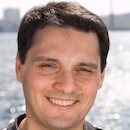
Athanasios (Nassos) VAFEIDIS
Nassos Vafeidis is Professor in Coastal Systems and Hazards at Christian-Albrechts University Kiel, Germany. His research explores how coastal systems respond to combined pressures from natural and anthropogenic processes under different physical, socioeconomic and adaptation scenarios. A particular focus of his work is how sea-level rise and socioeconomic development can exacerbate the impacts of coastal hazards and increase coastal vulnerability.
https://www.crslr.uni-kiel.de/en/
